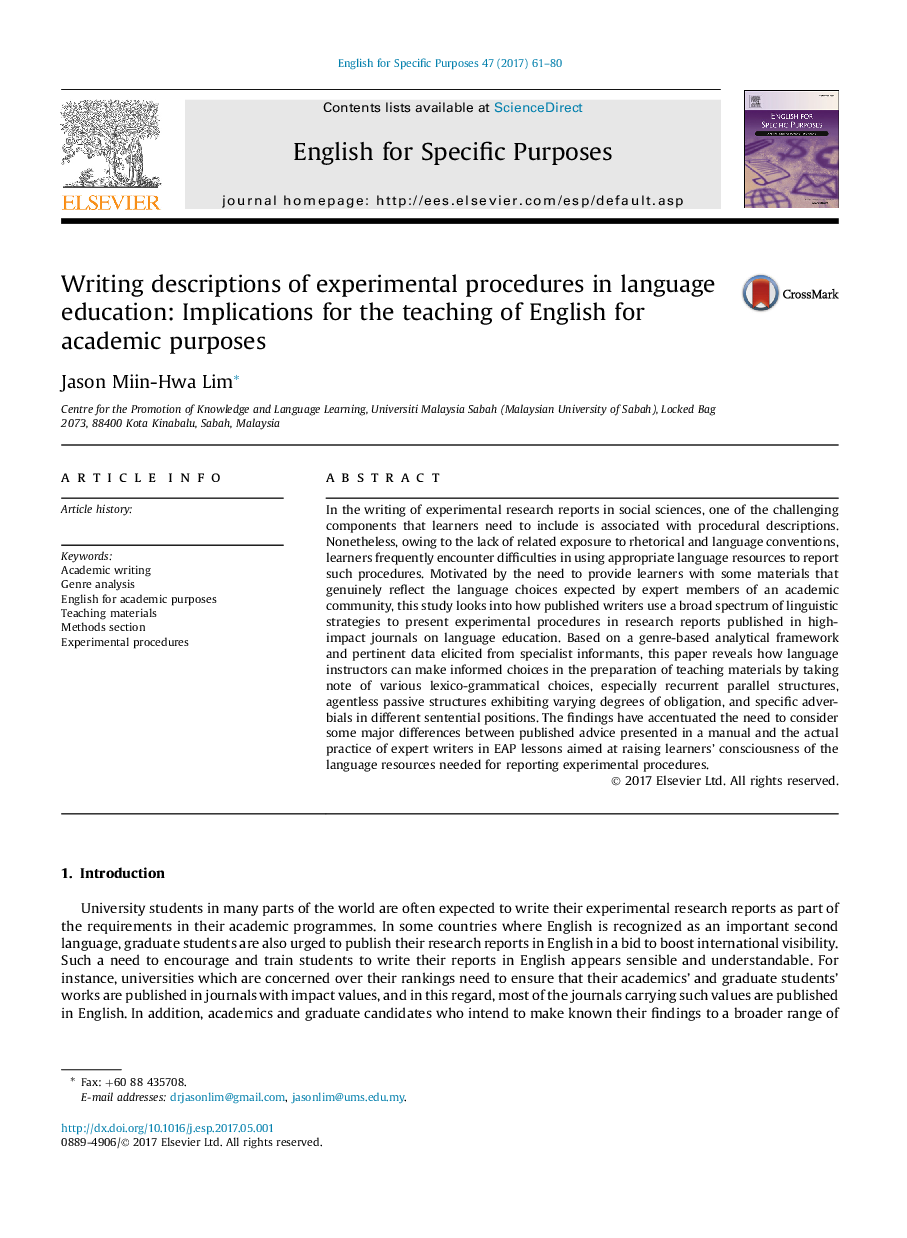| Article ID | Journal | Published Year | Pages | File Type |
|---|---|---|---|---|
| 4938430 | English for Specific Purposes | 2017 | 20 Pages |
Abstract
In the writing of experimental research reports in social sciences, one of the challenging components that learners need to include is associated with procedural descriptions. Nonetheless, owing to the lack of related exposure to rhetorical and language conventions, learners frequently encounter difficulties in using appropriate language resources to report such procedures. Motivated by the need to provide learners with some materials that genuinely reflect the language choices expected by expert members of an academic community, this study looks into how published writers use a broad spectrum of linguistic strategies to present experimental procedures in research reports published in high-impact journals on language education. Based on a genre-based analytical framework and pertinent data elicited from specialist informants, this paper reveals how language instructors can make informed choices in the preparation of teaching materials by taking note of various lexico-grammatical choices, especially recurrent parallel structures, agentless passive structures exhibiting varying degrees of obligation, and specific adverbials in different sentential positions. The findings have accentuated the need to consider some major differences between published advice presented in a manual and the actual practice of expert writers in EAP lessons aimed at raising learners' consciousness of the language resources needed for reporting experimental procedures.
Keywords
Related Topics
Social Sciences and Humanities
Arts and Humanities
Language and Linguistics
Authors
Jason Miin-Hwa Lim,
